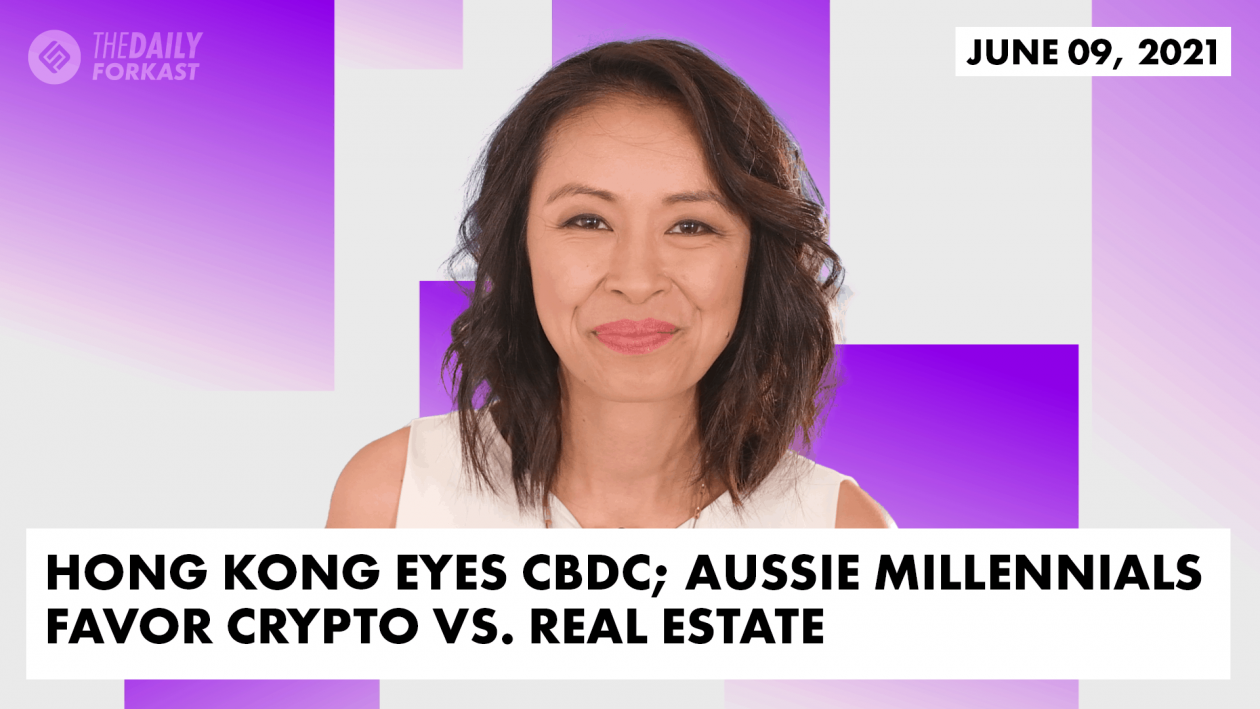The Hong Kong Monetary Authority to launch study into digital currency feasibility
Survey finds Australian millennials favor investing in crypto over real estate and holding bank accounts.
UNICEF Innovation Fund picks seven blockchain startups for funding.
More on that story and other news shaping the cryptocurrency and blockchain world in this episode of The Daily Forkast, June 9.
Transcript
Welcome to The Daily Forkast, June 9th, 2021. I’m Angie Lau. Let’s get you up to speed from Asia to the world. First, China, now digital currency ambitions taking shape in Hong Kong.
The city’s Monetary Authority says it’s now looking into the risks and benefits of using a digital Hong Kong dollar. The HKMA is launching a study to that effect and hopes to have some answers in a year’s time.
That’s according to the authority’s chief executive, Eddie Yue, who outlined those plans as part of Hong Kong’s new fintech strategy. He said this was a way to, quote, increase our technical readiness.
The more broadly, some experts aren’t entirely big on the growing number of cashless societies. I spoke to cryptocurrencies and civil liberties attorney and chair of the Filecoin Foundation, Marta Belcher, who voiced her concerns.
“I think that people really need to understand that financial transactions are a window deep into someone’s life, deep into their politics, deep into what they’re doing in their location, and that these types of transactions are incredibly sensitive.”
It’s not just traditional currencies. Now, even bank accounts are being viewed as a less favorable option, at least among Australian millennials. 22% of them believe that investing in crypto is a better way to grow their wealth instead. That’s according to a survey by US-based crypto exchange Kraken. They also found that nearly 40% of Aussies born between the early-80s and mid-90s would prefer crypto over real estate as an investment option.
“Millennials today, where salaries haven’t increased at the same rate that is comparable, with the increase in property prices — they’ve basically gone to other markets to look for something that is like crypto. It’s more volatile. There’s much more upside.”
But wait, what about boomers? Well, they remain cautious. 47% of them haven’t invested in crypto over volatility concerns. The same volatility that might be a driver for millennials.
Well, it’s official. Bitcoin is a legal currency in El Salvador. BTC spiked on the news, settling up 3.8%.
And in the top 10 for cryptocurrencies, mostly green run across the board, save for a Ethereum which remained unchanged and in the red. Surprisingly, one of the biggest performers was just outside the bracket. Solana ended the day up 14.3%.
And finally, before we go, UNICEF has announced it’s going to be investing in seven blockchain startups located across six countries, including India and Nepal.
The UNICEF Innovation Fund, which was launched back in 2016, will be overseeing the funding. Now companies will receive up to US$100,000 and five of them are actually choosing to receive part of that in Ether.
They’re also, however, working on blockchain-driven solutions for greater financial inclusion. It’s estimated that some 1.7 billion people around the world don’t actually have access to basic financial services like a bank account.
We spoke to UNICEF’s Cecilia Chapiro, who says Blockchain has a unique role to play in financial inclusion, and she hopes the chosen projects will target the problem.
“The solutions range from providing access to remittances, humanitarian cash transfers when it comes to emergency situations, a community currency, ability to loan and provide investment opportunities for underserved communities.”
Serving the underserved with blockchain solutions. And that’s The Daily Forkast from our vantage point right here in Asia. For more, visit Forkast.News. I’m Editor-in-Chief Angie Lau. Until the next time.

